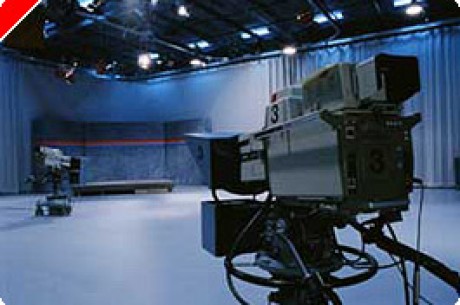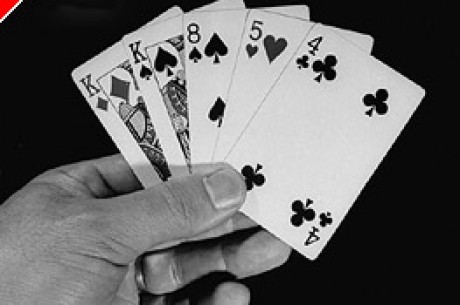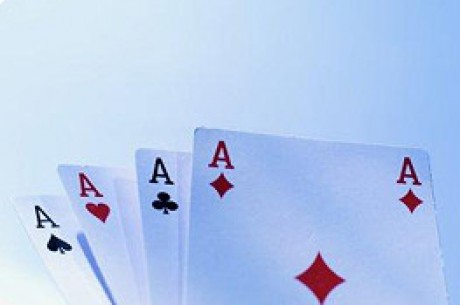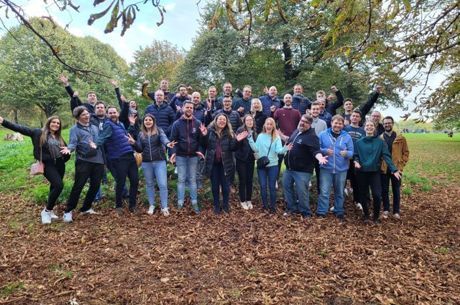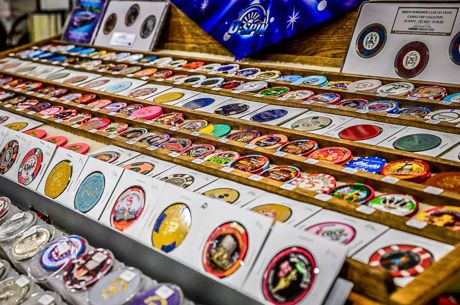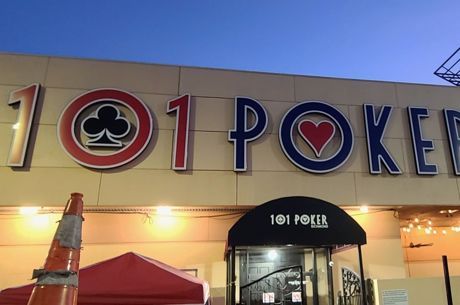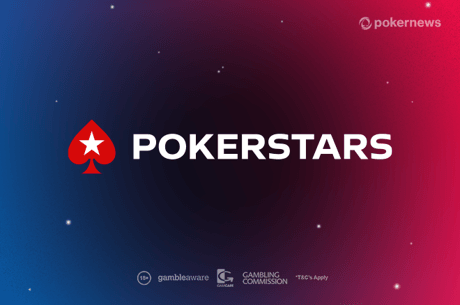The Business of Poker - Interview with Steve Lipscomb
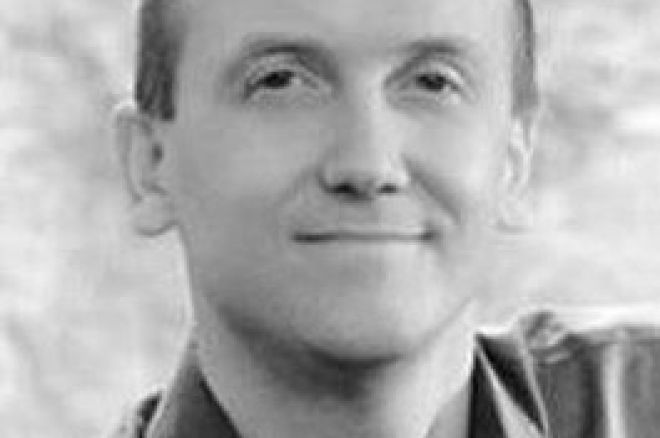
Three years ago say the name "Steve Lipscomb" in a crowd of poker players, and the likely response would have been - Who?? These days, the name Steve Lipscomb is as much of a part of the landscape of the poker world as the names Brunson, Hellmuth, etc.
Steve Lipscomb is the founder of the World Poker Tour, and currently the CEO of WPT enterprises, which manages the WPT brand, produces the television show, and controls all elements of the WPT. I recently spoke to Steve about the WPT, the challenges that he has faced, and what he sees for the future.
John Caldwell: Talk a little about the process you went through with Travel Channel that led to the approval of sponsor logos on WPT telecasts.
Steve Lipscomb: I think we work really well with Travel Channel. It's very difficult to get any broadcaster to allow logos in a television show. Because it's against the fundamentals of their business...what a television broadcaster does is it makes money by selling ads around the television show. And now, a big part of their business, because of Tivo all of those advertisers are expecting that they are going to get in-show integration. So, the actual content that is happening within the show is the world of ad sales which is the world of networks.
Given that context, it's a pretty huge step for the Discovery Networks, and Travel Channel to make the move. So, the time in my mind is just right. The marketplace has matured such that it is reasonable to think that there may be sponsorship opportunities that included players, the network, and the World Poker Tour all together. It actually benefits everybody to make this sponsorship thing just kind of all grow together.
JC: Tell me about how this logo decision will help the World Poker Tour, and what kind of ancillary benefits do you see as a result of this?
SL: I would like to think that, as much as anything - as players benefit, and more sponsors come into the world, it will be great for us to find new relationships, and for new things to happen. But, even if that doesn't happen....our business is poker, and the strengthening of the industry, and the ability of players to get sponsorships so they can continue to play on the tour is a big deal for us. So, in my mind, we benefit. As the poker world grows, we grow...Its kind of this lovely symbiotic relationship we have. I'm really thrilled it has happened.
Two big things went into the approval of logos. Firstly, Travel Channel has a new GM, Pat Younge. Pat is a guy who comes from sports television in the U.K., so he gets it. And I think really, it has been a learning process over time. But, when he came in, and I approached him, and I really started working on helping him understand where the current marketplace was, that made a big difference. This new guy is really going to be a good thing for all of us combined.
So, it was Pat, and the fact that when we started it was really more television show, less sport. We were trying to make everybody believe it was a sport. Even the advertisers back then made sure to limit contractually whether or not we could have other sponsors in or around the show. And, while that is still limited, that is opening up a little too, just with the understanding that for players to have some kind of logo representation is not a bad thing.
JC: You recently announced Budweiser will be the sponsor of the World Poker Tour for season four. This struck me as another watershed moment in the development of poker in that a company like Anheuser-Busch would put their signature brand on the World Poker Tour telecasts. I wonder if you could talk about that, and what led to that.
SL: I am wildly excited about this. Peter McLaughlin is the guy that really deserves a whole bunch of credit, because he was the guy that went to bat at Anheuser-Busch when we were real young. To get on board for the second season of the World Poker Tour means that he got this before anyone else did. He is one of the guys who runs their whole sponsorship program, and he went to bat, and said 'Hey, this is going to be something, and we believe in this World Poker Tour'. They have been with us now for three seasons.
For them to make the step to go up to their signature brand means a few of things. Firstly, what we mean to the sport itself, secondly that it has arrived as a sport. All of that stuff is pretty exciting.
JC: Let's talk about the global reach of the World Poker Tour. I know you have been aggressive about expansion. Are you happy with the results, and are you seeing the same impact overseas that the show has had domestically?
SL: We are now licensed to broadcast in 116 territories and countries. This is in a very short period of time. We've only been out selling this to other markets for a little over a year and a half, under two years. This is a kind of penetration you very seldom see...Certainly with a cable television show, it is remarkable.
The reason for that...the reason it is selling well in the international market, is because its created the kind of phenomenon for broadcasters internationally that it did for Travel Channel here. Challenge Television, which is a small cable broadcaster in the U.K. began airing the World Poker Tour, and it started doing 300-400 times what the station did. And literally put them on the map in the U.K. the in the same way that the Travel Channel really moved up into a different league when the World Poker Tour began airing.
In Sweden, and Scandinavia...its one of those great television stories. Our distributor got a call on a Thursday from a guy who he had been trying to bug to put the show on their air, and the guy said 'OK, I have a slot this Sunday.' And, my guy said 'wait...you aren't going to promote it?', and the programmer said 'I'm going to put one show on, and we'll see how it does'. Anyway the show did two and one half times what the time slot had done the week before. So, they immediately called, and ordered the series. By the second time it ran, it was doing a 30 share, meaning 30% of the people watching television in Sweden were watching the World Poker Tour. The great thing about the show, and the content, the way it works is, much like Baywatch...you don't need to translate it. You know with Baywatch, you don't need to translate that stuff, and with cards....it's still cards. Most of what you see and hear is the commentators under...so, if you dub that, it's not as if you see lips flapping, and they don't sync....you just see the game play.
We recently started airing in France on Canal Plus, basically the equivalent of their HBO, and it has turned into the same kind of thing. They are doing three times what they do on their channels at other times. We have partnered with Patrick Bruel, who is a very famous French actor/singer, who is the equivalent of Mike Sexton there. So, Mike, and Vince don't exist in the French version of the show, and as such it feels like an organic French show.
JC: Let's talk about the business of online poker, and specifically WPT Online. This allows you to participate in online gaming in territories where it is legal. Do you ever sit back and wonder just how massive WPT Online could be if you could take US bettors?
SL: Yes. We would be the PartyGaming Nine Billion dollar valuated company.
JC: Can you find a way to do that, and is that a goal?
SL: Oh sure. We plan to be very much involved in leading the discussion about online gaming in the United States. I don't think there is much of an alternative to legalizing, taxing, and regulating it. I'm sure we will be involved in that.
The current administration is very conservative, and I doubt this is going to be an issue they will try to move on. On the other hand, there is only, what three years left {laughs}. I think it has to happen eventually. You & I are both very much aware that what is going on now is the great gold rush. Now, you hear stories of all of those online sites moving all their employees, and all their assets out of the United States so they get over to the U.K. and go public. Eventually, that has got to be perceived as a huge loss in this country.
JC: That leads me to another question...Do you ever regret going public?
No. Not in the least.
I think being a public company gives us resources, and strength to carry us forward. Remember, we are in my mind, the NBA/NFL of poker, and plan to stay that. The online gaming is a piece of our business, but the long term strategy is to continue to be one of the two or three major brands globally that are defining this market. So, the resources we got from the IPO will certainly help on that front. The other thing that will continue to matter for us is that we keep making it possible to allow people to participate in what we do. I have always thought of, and have always preached poker as a sport for a long time. A lot of people laughed at me for that - not you, not poker players, but a lot of people laughed when we called this a sport, and they are not laughing anymore. It is a sport unlike any other in that people can participate in it. Part of going public for us was motivated really by another first in sports history. This is the first sport in the history of televised sport that you can just show up, and participate in. Everyone talks about how you cannot play with Tiger Woods, but you can show up, and play against Scotty Nguyen, and Daniel Negreanu. Another real interesting first is that there has never been an emerging sports league that has allowed people to participate in all forms - you can watch it, you can play in it, and you can actually invest in it.
PN: Since the show has had a foothold, and you have had a hit on your hands, what has been the biggest challenge to you personally to keep the momentum going?
SL: I think the most challenging and rewarding thing in any growing business has to do with growing pains, and people. Either the challenge of trying to find the right talent, or working with people who don't grow as fast as the company, and dealing with those circumstances...I would say those have been the most challenging issues.
The good thing is, we are just finding a new generation of excited people. I like to talk to management, and use the example of the growth days of Microsoft, when even after they had moved to the point where they were a dynamic, and remarkable company, they were able to recruit people who wanted to be in that corporate culture, and wanted to grow for their own benefit, a super big monster. I think we are poised to be in that growth curve for a long time.
JC: What has surprised you the most about the journey you have had over the last two or three years?
SL: Surprise is tough...I may couch the question a different way. I continue to be humbled by the whole experience. I truly feel that there aren't many people who get to experience the American Dream. To go from a business plan, to what's now a global phenomenon, in three years, is just the kind of thing that again...I step back and am in awe that I am fortunate enough to be a part of it. I really mean be a part of it, because there are so many people involved in making this happen. The people I work with every day, the casinos that support us, Lyle Berman, and the people at Lakes. The people at the Travel Channel...there has been an amazing effort. It just goes so fast, you almost want to hit the pause button, to stop, and look at it.
Then I get to your question about the surprise. I think if there is any surprise, I think it would be the challenges of success. I remember the very first press conference we had before we started the very first event of the World Poker Tour. And looking at what was a very different poker world inhabited by many of the same poker faces. A lot of the faces that are here now weren't even there. The big change that has happened here has happened so quickly for everyone, that it has been challenging for a lot of people to adapt, and for those new relationships to be understood. I would say, if anything has been a surprise, it is how challenging handling that change has been. I would hope we can all appreciate this, and embrace each other, and find ways for us all to be excited about what is happening.
JC: What do you see for the future?
SL: I think in the future you are going to see such a land of opportunity. From Lyle Berman putting up millions of dollars, to the Travel Channel putting this in prime time...something that every other network thought didn't stand a chance of being interesting. Those kinds of things opened up a world that so that now really people are experiencing the benefits. Players are finding that through television exposure they have the possibility of sponsorship, the possibility of creating products that are going to make them very wealthy. There is nobody in the world that is happier about that than me. I am thrilled that those opportunities are available, and that everyone is doing so well.

